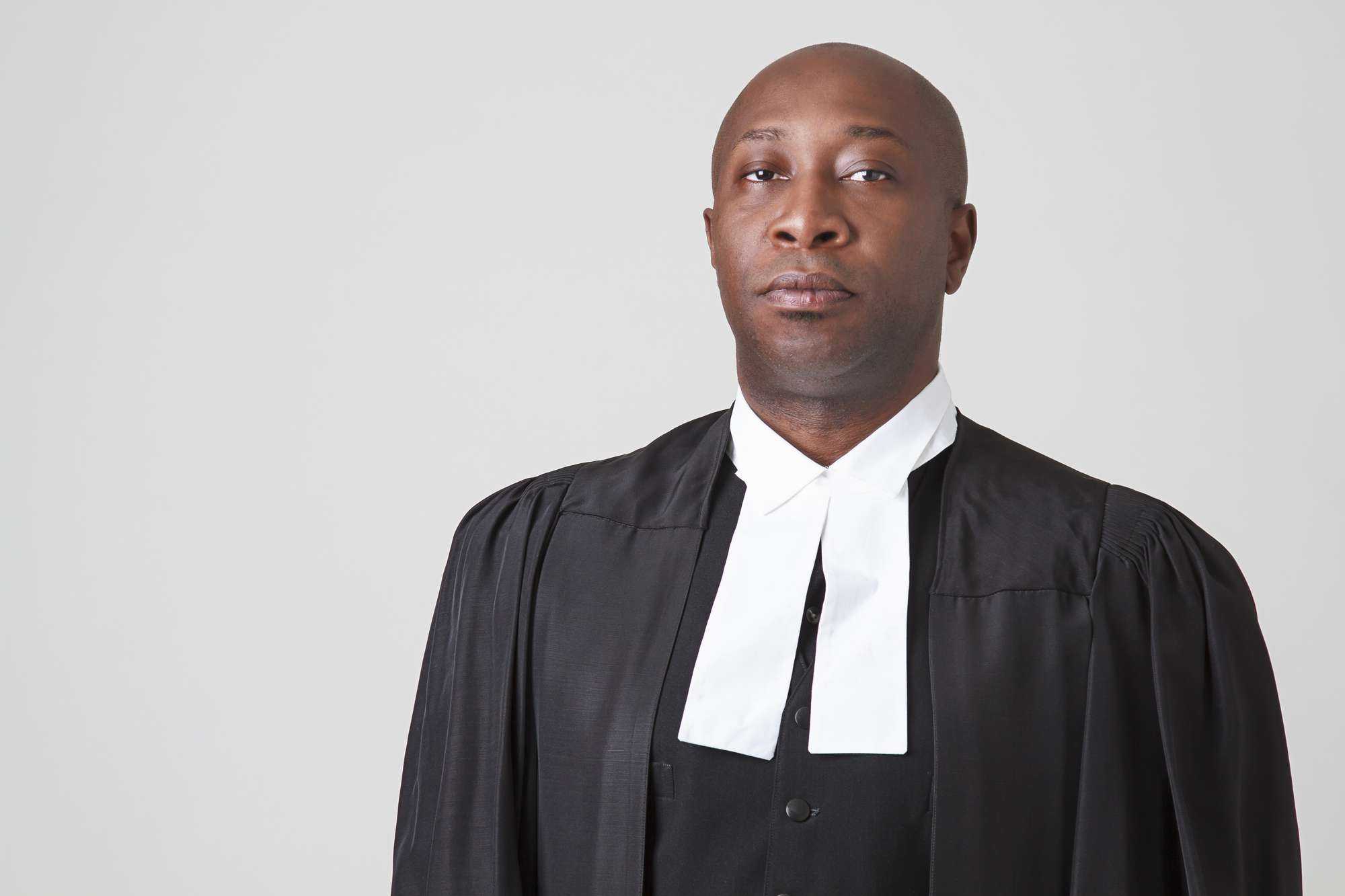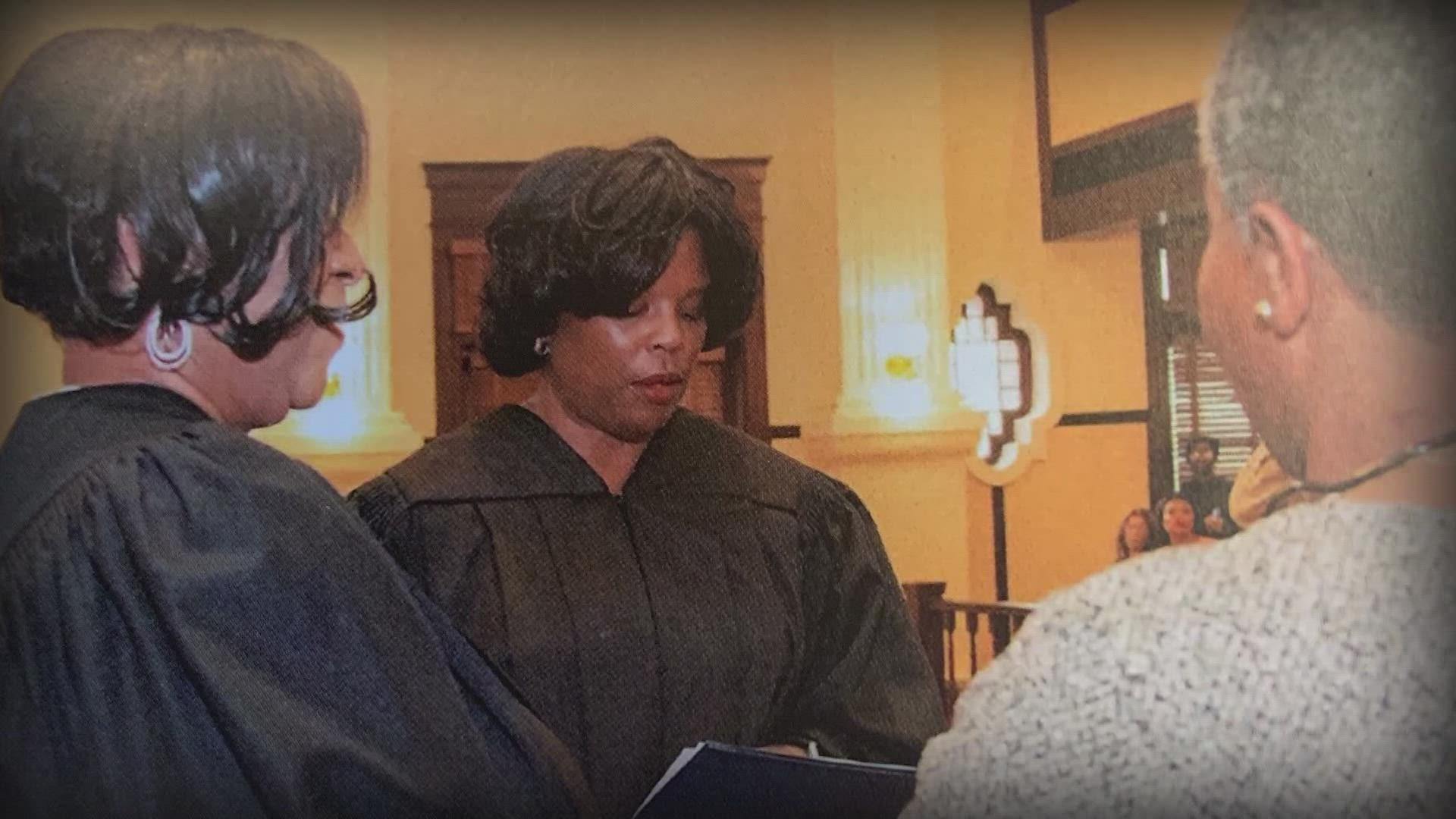Can a public servant, sworn to uphold the law, become entangled in a web of their own making? The arrest of Douglas County Probate Judge Christina Peterson on felony charges in Atlanta, after an alleged altercation with law enforcement, throws a stark light on the complex and often contradictory nature of justice and those who administer it.
The courtroom, a hallowed space where truth and justice are ostensibly sought, sometimes witnesses dramas more compelling than fiction. Recent events in the legal landscape have highlighted this reality, with the actions of judges themselves becoming the subject of scrutiny and, in some cases, criminal charges. The case of Judge Peterson, who was taken into custody after an incident in Buckhead, a district in Atlanta, underscores a disturbing trend: the potential for those in positions of power to abuse that power, or to find themselves on the wrong side of the law they are sworn to enforce.
The situation involving Judge Peterson isn't an isolated incident. The legal system, a intricate network of courts and judges, is subject to human failings. Across the country, tales of judicial misconduct, ethical breaches, and even criminal behavior are, unfortunately, becoming more frequent. The removal of judges from cases due to allegations of conflicts of interest or bias, as was the case with Fulton County Chief Judge Ural Glanville in a prominent racketeering trial, exemplifies this problem. The recusal, a formal process, highlights the critical importance of impartiality and the necessity of maintaining public trust in the judiciary.
The legal system has a robust check and balance, that should not only ensure fairness, but it should also prevent abuse of power. The judiciarys integrity is often tested, and sometimes, those tests reveal vulnerabilities. Instances like the one involving Judge Tracie Hunter in Cincinnati, who was dragged from a courtroom after her conviction for misuse of her position, demonstrate the seriousness of these offenses and the repercussions they carry. These incidents are alarming, and raise serious questions about judicial accountability and the ways in which the justice system manages its own internal ethical standards.
The drama extends beyond the specifics of individual cases. It serves as a reminder of the human element at the heart of the legal system. Judges, like everyone else, are susceptible to making errors, being influenced, or acting out of personal feelings. A series of occurrences in the news, like those in Atlanta, Cincinnati, and other cities across the nation, highlight that even those who interpret and apply the law are not immune to ethical lapses or legal ramifications.
Adding another dimension, the news media also plays a vital role in revealing these happenings. Paula Rogo's report for WLWT.com, updated on October 23, 2020, is an example of how reporters bring important stories to public consideration. The media's scrutiny, although sometimes controversial, provides an essential layer of responsibility, forcing the legal system to address misconduct and uphold its standards.
The details of Judge Peterson's arrest in Atlanta, as reported, are concerning, particularly the allegations of threats and the use of "felony obstruction of law enforcement officers" charges. The footage of the incident, showing the judge speaking to the arresting officer in ebonics while handcuffed, paints a picture of a situation that is intricate and that should be carefully examined. The use of the word "expeditiously" in the middle of the exchange, however, seems unexpected, bringing together ideas of formal law with an unexpected and intense moment of legal trouble.
The intersection of law, politics, and celebrity is another facet of the story. The fact that a judge in a federal racketeering trial involving the rapper Young Thug was dismissed indicates the legal systems complex nature. The legal world sometimes comes face to face with the worlds of fame and money, as well as the constant tension of having an unbiased courtroom.
The concept of Ghetto Court, seen in the new television show from Eric B, provides additional information and adds a different lens to this discussion. This approach highlights the cultural influences and societal factors that have an impact on how the law is seen and experienced by people. The show's name, which plays with images of street justice, is an example of the law's complexity and the many interpretations that exist about it.
These issues are not limited to the contemporary world. Historical examples, such as the experiences of Jewish people in the Zhitomir Ghetto during World War II, demonstrate the worst cases of abuse of power and the tragic effects of the failure of justice. These accounts serve as a chilling reminder of how easily the rule of law can be abused, and the enormous consequences that result when it is violated.
The legacy of the Holocaust serves as a terrible reminder. The experiences of those who lived in the Zhitomir Ghetto, which was taken over during the Nazi invasion of the USSR in July 1941, have a powerful influence. The story of how the city's Jewish population was forced to live in a ghetto, wear a Jewish star, and eventually be murdered is a tragic example of how easily the rule of law can be abused and the horrifying consequences when it is.
In the face of these difficulties, the discussion about justice, power, and accountability has become more urgent than ever. The legal system's strength is determined by the public's faith in it, which is why it is important to hold those in positions of power to the highest standards. The stories of Judge Christina Peterson, Judge Tracie Hunter, and others serve as warnings, urging all to keep their commitment to fairness, ethics, and the rule of law.
The phrase "In the Ghetto," made famous by Elvis Presley, serves as another reminder of the themes of despair and the cycle of hardship that frequently permeates the lives of those who are trapped by poverty and violence. The song's lyrics, which tell the story of a youngster born into challenging circumstances, are a poignant illustration of the social challenges that frequently coincide with legal problems.
The album "Only God Can Judge Me" by Master P, released on October 26, 1999, is also noteworthy. The album's title highlights the limits of human judgment and highlights the significance of a larger moral framework. The music offers a distinct viewpoint on the difficulties of life, justice, and forgiveness, even as it explores the subjects of hardship, hope, and resilience.
In the realm of music, the song "Ghetto" by LLO featuring 2Smoove provides another look at these themes. The song's release, along with the music video, gives a cultural viewpoint, highlighting the experiences and views of people who have dealt with hardship and social problems. The song highlights the different ways in which culture, music, and the legal system interact.
| Category | Details |
|---|---|
| Full Name | Christina J. Peterson |
| Position | Douglas County Probate Judge |
| Political Affiliation | Democrat |
| Legal Issue | Facing felony charges of obstruction of law enforcement officers |
| Location of Incident | Buckhead, Atlanta |
| Key Events | Arrested at a club, alleged altercation with law enforcement |
Reference: The Atlanta Journal-Constitution
The instances highlighted in this analysis serve as a sobering reminder of the human condition, its frailties, and the significance of the legal system's integrity. These narratives act as a call to action, urging greater transparency, accountability, and the constant pursuit of justice for all.


